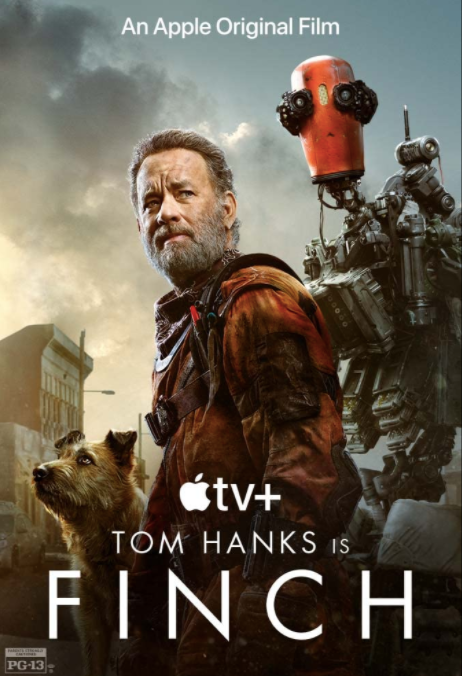
Just saw Finch on Apple TV+, at once a small scale infinitude of a movie, a quiet triumph of a story that may be the best robot AI film I've ever seen.
The bare bones are Finch is a genius inventor in a post-apocalyptic America who builds Jeff, a gangly robot, to take care of Finch's dog Goodyear, after Finch is gone, which won't be long. He's dying from over-exposure to UV radiation, due to the solar flare that wiped who knows how much of the world. But the apocalypse is the least important part of the story, a means to an end, which depicts how Jeff learns to be human.
As such, Finch (the movie and the character) builds on Asimov's three laws of robotics -- (1) a robot cannot harm a human, or by inaction allow such harm to occur, (2) a robot must follow every command it receives from a human, except commands in conflict with the First Law, and (3) a robot must act to protect itself, except when such a protection conflicts with the first two laws. So, for example, in Asimov's schema, a robot would have no choice but to destroy itself if so ordered by a human, unless it was needed to protect a human. Asimov's later promulgated a "zeroth" law, that a robot must act to save the many rather than the few, but not every Asimovian purist has accepted that John Stuart Millian utilitarian principle.
Finch (brilliantly played by Tom Hanks) expands the three laws by adding a fourth -- Jeff must protect Goodyear the dog, but that's just shorthand for the rich tableau, sometimes funny, sometimes heartrending, in which Jeff (deftly played by Caleb Landry Jones), growing into his intelligence, seeks to protect both Finch and Goodyear. Jeff makes mistakes, has its/his feelings hurt, but learns the importance of mastering such mundane but essential tasks -- essential to Goodyear's wellbeing -- as playing throw and fetch the ball with the lovable pooch.
There have been many a depiction of robots, with or without Asimov's laws as a guide, on television and movie screens. Demerzel, more properly an android than a robot, began existence as R. Daneel Olivaw in Asimov's robot novels, and became Demerzel is Asimov's Foundation prequel decades later. He became she in the Foundation series also on Apple TV+ these days, and I've found myself irritated at her character, in contrast to the Foundation series as a whole, which I think is top notch. Having just seen Finch, I now understand why.
Jeff in Finch is somehow more than just a character, a cog in the machine of the motion picture. The movie manages to make us believe that he is human in the end, and not because he looks good in a hoodie jacket. That evolution makes the movie heart-warming, even reassuring, despite the apocalypse and its effects, and one I'll always treasure seeing.

No comments:
Post a Comment